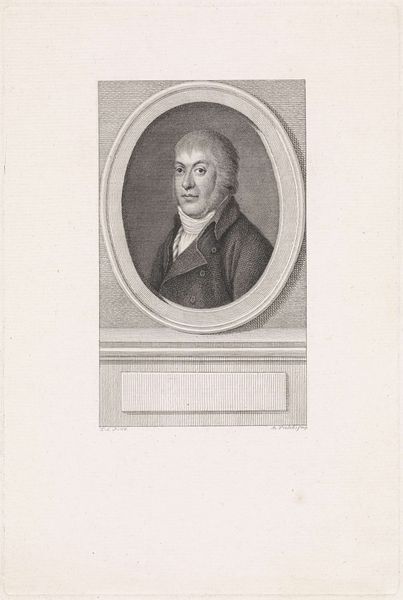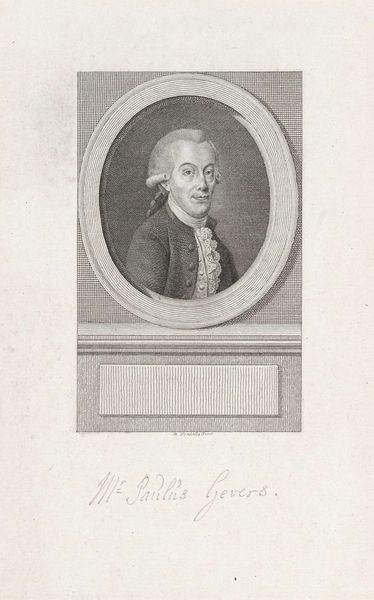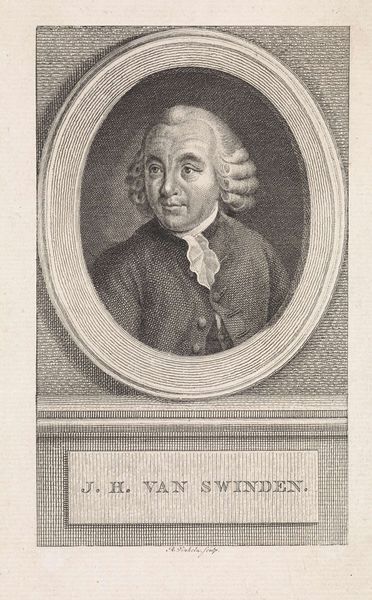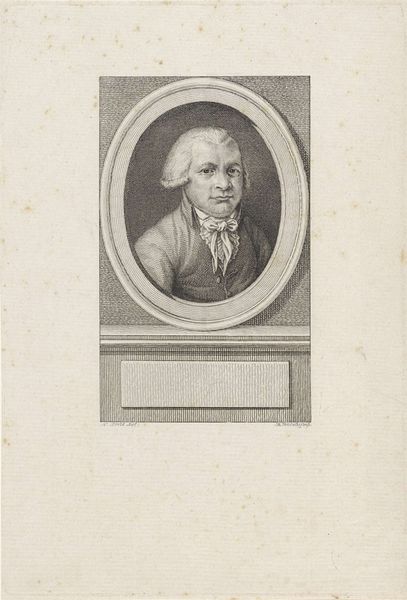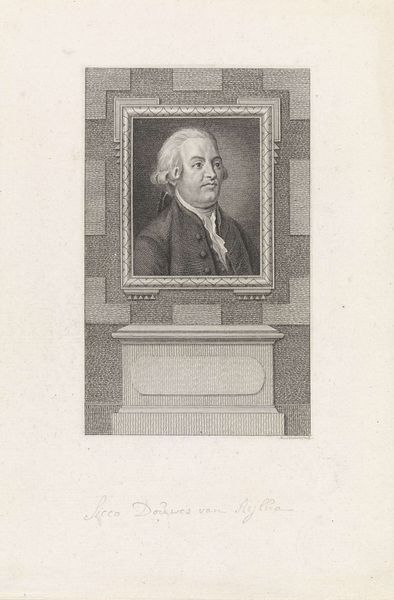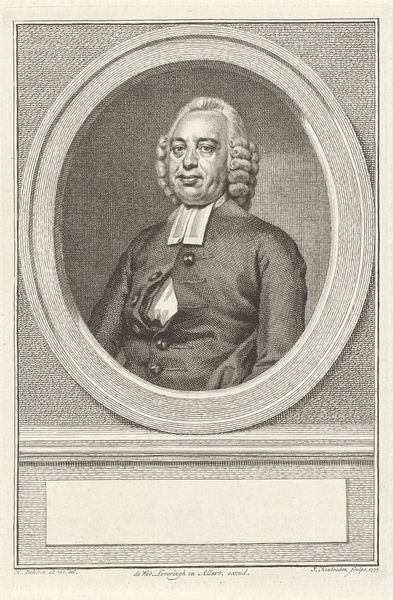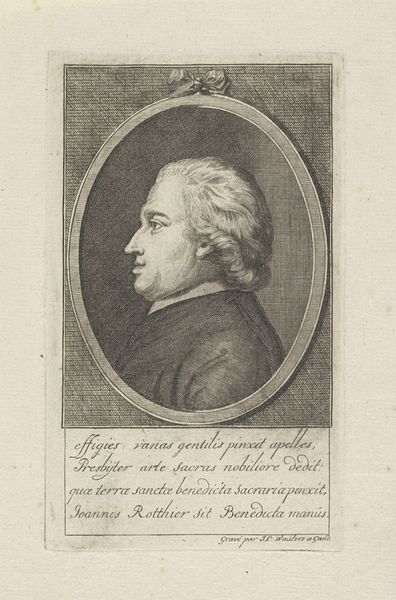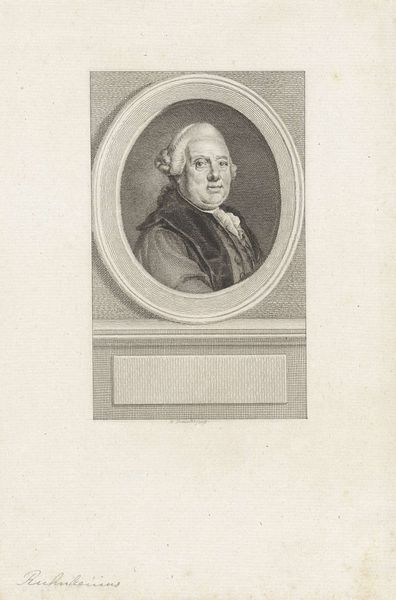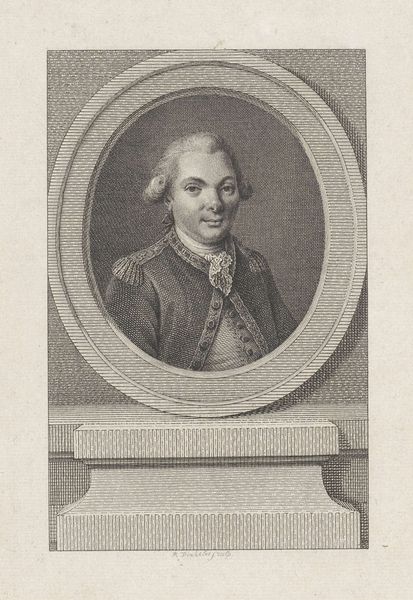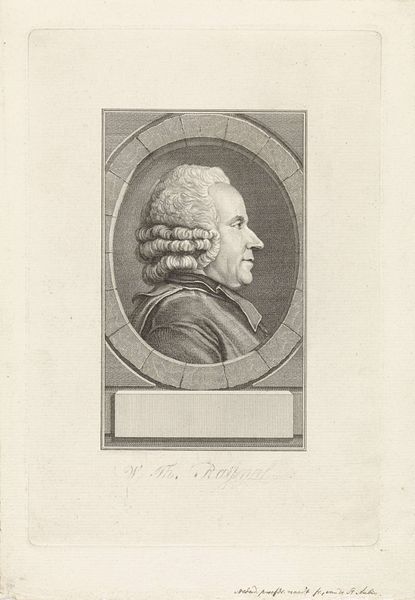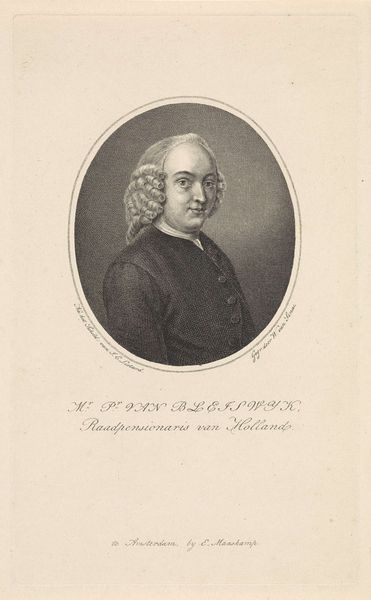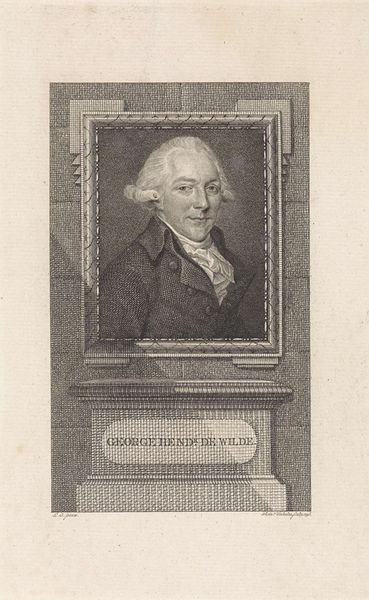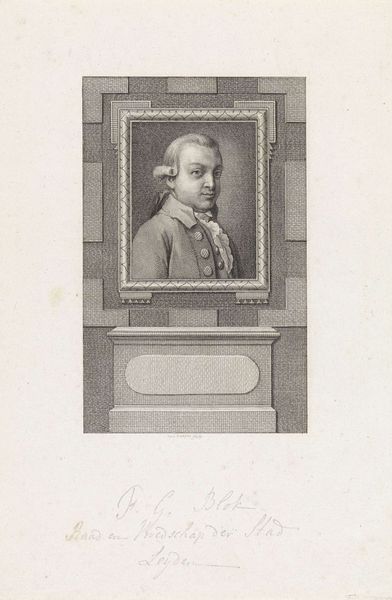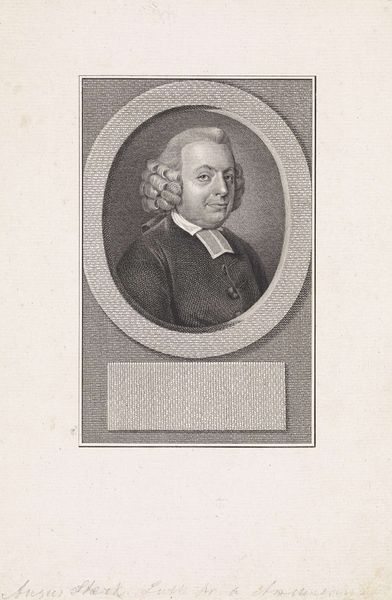
print, engraving
#
portrait
#
neoclacissism
# print
#
old engraving style
#
portrait reference
#
graphite
#
engraving
Dimensions: height 251 mm, width 164 mm
Copyright: Rijks Museum: Open Domain
Editor: Here we have Reinier Vinkeles' portrait of Simon Stijl, made sometime between 1786 and 1809. It’s an engraving, giving it a really crisp, clean feel. What can you tell me about it? Curator: I see here a clear example of the industrialization's influence on artistic production. Engravings like this were replicable, entering the domain of mass consumption. It makes me consider who was commissioning these portraits and for what purposes. Were they a signifier of status, entering into the commercial marketplace? Editor: That's a fascinating point! I hadn't considered the production aspect so deeply. It makes me wonder about Vinkeles' role, not just as an artist, but also as a kind of manufacturer of images. Was he consciously critiquing or embracing this shift towards mass production? Curator: We can consider this two ways. While Vinkeles, through his technical skills, directly participates in reproducing images for potential widespread distribution, we can investigate the division of labor in printmaking during this period. This print becomes a commodity, separated from the hand of Simon Stijl; however, we should remember Vinkeles's labor which enabled the print's social value in the first place. What aspects of this work stand out to you? Editor: It's interesting how a seemingly simple portrait reveals such complex layers when viewed through a materialist lens. I initially just saw a straightforward depiction, but now I see the convergence of art, labor, and the beginnings of mass media. Curator: Exactly. And that's how looking closely at materials and methods opens up whole new understandings of the artwork’s place in its society.
Comments
No comments
Be the first to comment and join the conversation on the ultimate creative platform.
